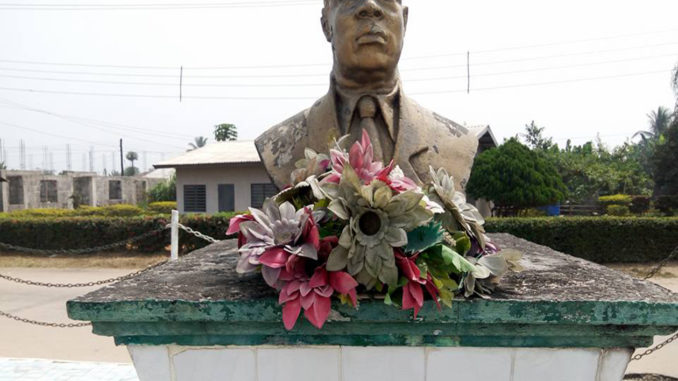
History remains a fascinating phenomenon. Read as a reconnaissance of the past, it lights the path to the future and humanises humanity.
When Onigu Otite, professor of sociology at Ibadan framed the title of his 1983 inaugural lecture as “The Presence of the Past,” he was foregrounding the paradox of history.
Enthralled as I have been, with History, a friend who studied the discipline recently described it as a bitch.
Shocked, I threw a questioning look at him.
To him, History is a bitch because it panders only to hegemonic whims.
The history of the world, he said, has no place for underlings.
The minorities so constructed by the hegemony are undermined by history.
My attempt to point at the tendency for counter-narrative to re-tell the history of the negated cut no ice with him.
He highlighted the glaring absence and “deliberate” omission of Ogbiyerin Oshue, Mukoro Mowoe, Harold Biriye, H. Omo-Osagie, Ernest Ikoli, James Otobo, Egbert Udo Udoma, Ambakederemo, Ovedje Osadjere, among others of the minority provenance from Nigerian history and education curriculum.
He castigated Nigerian history as beholding to the hegemonic majority who easily subject the minorities to erasure no matter their contributions to the making of Nigeria.
Again, I told him that the minorities can always write and propagate their own history as counter-strategy against hegemonic suffocation. But my friend was implacable.
In the middle of July he told me to watch if the seventieth anniversary of the passage of legendary Mukoro Mowoe would be remembered or marked in August which was the month he died in 1948.
In truth, the event nearly passed unnoticed, but for Mowoe’s immediate family that organised a memorial service.
When after the memorial service my friend called me to lend credence to his position, I asked him about who should be blamed in the “deliberate” silencing of the contributions of the minorities to the making of Nigeria.
Should we blame the dominant ethic nationalities or blame ourselves who refused to remember, celebrate and honour our heroes?
Mowoe who died on August 10, 1948 was a Nigerian nationalist of Urhobo extraction.
Obaro Ikime, preeminent University of Ibadan History professor, inscribed the story of Mowoe in the biography, The Member for Warri Province: The Life and Times of Chief Mukoro Mowoe of Warri 1890-1948.
According to Ikime in this 1977 biography, “At the time of his death Chief Mukoro Mowoe was a member of the Western (Regional) House of Assembly, General Merchant- Exporter and Importer, President-General of the Urhobo Progress Union.
No other person in the entire province combined in himself such multifarious duties to his people and the province.
Everyone – from the youngest child to the grey-bearded – knew the name Mowoe.
He was virtually a legend in his own life time.
Yet over twenty-five years after his death, nowhere is there a memorial to this great man of the thirties and forties”.
Mowoe, born around 1890, was a self-made merchant and nationalist.
He was there at the inaugural moment of Nigerian nationalism as a pioneer member of the National Council of Nigeria and the Camerouns (NCNC).
Mowoe through diligence and vision negotiated a place for himself as a leading nationalist before he died quite early during the anti-colonial struggle in 1948.
Mowoe was a member of the Western House of Assembly at the time of his death.
He offered Dr. Nnamdi Azikiwe accommodation for the Zik’s Group of Newspapers in Warri in 1947 and took on many tasks to advance the fortune of the province and people of Warri whom he represented in the Western Region House of Assembly.
Mowoe’s place in the reckoning of Urhobo people approximates apotheosis. He is as an avatar and a model of Urhoboism.
He galvanised the Urhobo to join in laying the seminal foundation for Nigeria.
He was, together with Omorohwovo Okoro, instrumental to the founding of the Urhobo Brotherly Society in 1931.
The society metamorphosed into the Urhobo Progress Union (UPU) of which Mowoe became president-general in 1937.
He toured Nigeria, visiting every town where Urhobo people lived and rallied them to a common cause.
When Apollo Ikutegbe envisioned the idea of a secondary school to enhance the access of Urhobo youths to western education, Mowoe not only ensured that it materialised as Urhobo College, Effurun in 1948, but made the UPU to institute a scholarship scheme through which the first two Urhobo university graduates, Macneil Gabriel Ejaife and Ezekiel Norucho Igho studied overseas.
Both men returned to run Urhobo College as Principal and Vice Principal respectively.
This story has been romantically told by Chief T. E A. Salubi as “The Miracle of an Original Thought.”
Mowoe’s death in 1948 was a blow to the Urhobo.
He was a Moses who pointed at the Promised Land, but didn’t enter.
But since he had laid the foundation for the future, the Urhobo people soldiered on with an uncommon verve and vigour and in about two decades after Mowoe’s death attained commanding heights within and outside Nigeria.
END

Be the first to comment